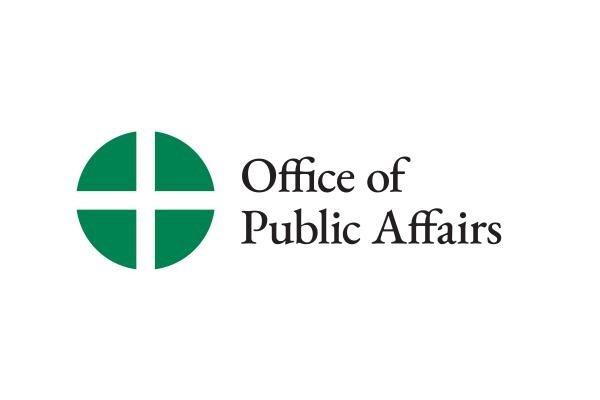Border Bishop Urges Congress To Pass Comprehensive Immigration Reform Instead Of Harsh Enforcement Bills
WASHINGTON—Bishop Gerald Kicanas of Tucson, Arizona, testified on behalf of the U.S. Conference of Catholic Bishops (USCCB) Committee on Migration before the House Judiciary Subcommittee on Immigration and Border Security, February 11, in opposition to three enforcement-only bills.
February 11, 2015
WASHINGTON—Bishop Gerald Kicanas of Tucson, Arizona, testified on behalf of the U.S. Conference of Catholic Bishops (USCCB) Committee on Migration before the House Judiciary Subcommittee on Immigration and Border Security, February 11, in opposition to three enforcement-only bills. Collectively, the bills would harm immigrant and refugee children; criminalize undocumented persons and those who provide them with basic needs assistance, including religious and church workers; and permit states and localities to create and enforce their own immigration laws.
In his statement before the subcommittee, Bishop Kicanas said the three bills “would take our nation in the wrong direction,” and fail to fix our nation’s immigration system. Instead, he urged the subcommittee to pass comprehensive immigration reform legislation, including a path to citizenship for the undocumented.
“Mr. Chairman, we believe these bills would not fix our immigration system,” Bishop Kicanas said. “Rather, they would make it less just and would undermine our nation’s moral authority, both domestically and globally.”
Bishop Kicanas pointed to the numerous provisions in the three bills which would harm immigrant and refugee children, including repeal of the Deferred Action for Childhood Arrivals (DACA) program, affecting 600,000 children, and the repeal of protections for unaccompanied alien children fleeing violence in Central America, subjecting them to return to possible harm without the benefit of an immigration hearing.
“Our country is judged by how we treat the most vulnerable and the removal of protections from children ¬–both in the DACA program and those seeking refuge– flies against human decency and violates human dignity. We should not punish these children, who themselves are innocent and are only seeking opportunity and safety.”
Finally, Bishop Kicanas pointed to provisions in the Secure and Fortify Enforcement (SAFE) Act which would criminalize undocumented persons and those who transport them, including religious and lay faith-based workers, to a hospital, soup kitchen, or Mass.
Citing similar provisions in a 2006 bill which sparked protests across the country, Bishop Kicanas asked: “As a nation, do we want to go down this road again? Do we want to criminalize millions of persons who have built equities in this country, jail them, and separate them from their families? Instead of fixing a broken system, would we want to jail nuns and other good samaritans who are simply aiding their fellow human beings, consistent with their faith?”
“Mr. Chairman,” Bishop Kicanas concluded, “the U.S. Conference of Catholic Bishops, the people of many faith communities, and the majority of Americans were disappointed that comprehensive immigration reform legislation was not passed in the 113th Congress. You once again have the opportunity to fix the broken system in the 114th Congress. We stand ready to work with you toward this goal.”
Bishop Kicanas’ full written statement is available at www.usccb.org/about/migration-policy/congressional-testimony/upload/Kicanasfinal.pdf
---
Keywords: U.S. Conference of Catholic Bishops, USCCB, Bishop Gerald Kicanas, migrant, immigration, human trafficking, undocumented, Congress, deportation, Subcommittee on Immigration and Border Security
# # # # #
MEDIA CONTACT:
Norma Montenegro Flynn
O: 202-541-3202
In his statement before the subcommittee, Bishop Kicanas said the three bills “would take our nation in the wrong direction,” and fail to fix our nation’s immigration system. Instead, he urged the subcommittee to pass comprehensive immigration reform legislation, including a path to citizenship for the undocumented.
“Mr. Chairman, we believe these bills would not fix our immigration system,” Bishop Kicanas said. “Rather, they would make it less just and would undermine our nation’s moral authority, both domestically and globally.”
Bishop Kicanas pointed to the numerous provisions in the three bills which would harm immigrant and refugee children, including repeal of the Deferred Action for Childhood Arrivals (DACA) program, affecting 600,000 children, and the repeal of protections for unaccompanied alien children fleeing violence in Central America, subjecting them to return to possible harm without the benefit of an immigration hearing.
“Our country is judged by how we treat the most vulnerable and the removal of protections from children ¬–both in the DACA program and those seeking refuge– flies against human decency and violates human dignity. We should not punish these children, who themselves are innocent and are only seeking opportunity and safety.”
Finally, Bishop Kicanas pointed to provisions in the Secure and Fortify Enforcement (SAFE) Act which would criminalize undocumented persons and those who transport them, including religious and lay faith-based workers, to a hospital, soup kitchen, or Mass.
Citing similar provisions in a 2006 bill which sparked protests across the country, Bishop Kicanas asked: “As a nation, do we want to go down this road again? Do we want to criminalize millions of persons who have built equities in this country, jail them, and separate them from their families? Instead of fixing a broken system, would we want to jail nuns and other good samaritans who are simply aiding their fellow human beings, consistent with their faith?”
“Mr. Chairman,” Bishop Kicanas concluded, “the U.S. Conference of Catholic Bishops, the people of many faith communities, and the majority of Americans were disappointed that comprehensive immigration reform legislation was not passed in the 113th Congress. You once again have the opportunity to fix the broken system in the 114th Congress. We stand ready to work with you toward this goal.”
Bishop Kicanas’ full written statement is available at www.usccb.org/about/migration-policy/congressional-testimony/upload/Kicanasfinal.pdf
---
Keywords: U.S. Conference of Catholic Bishops, USCCB, Bishop Gerald Kicanas, migrant, immigration, human trafficking, undocumented, Congress, deportation, Subcommittee on Immigration and Border Security
# # # # #
MEDIA CONTACT:
Norma Montenegro Flynn
O: 202-541-3202

